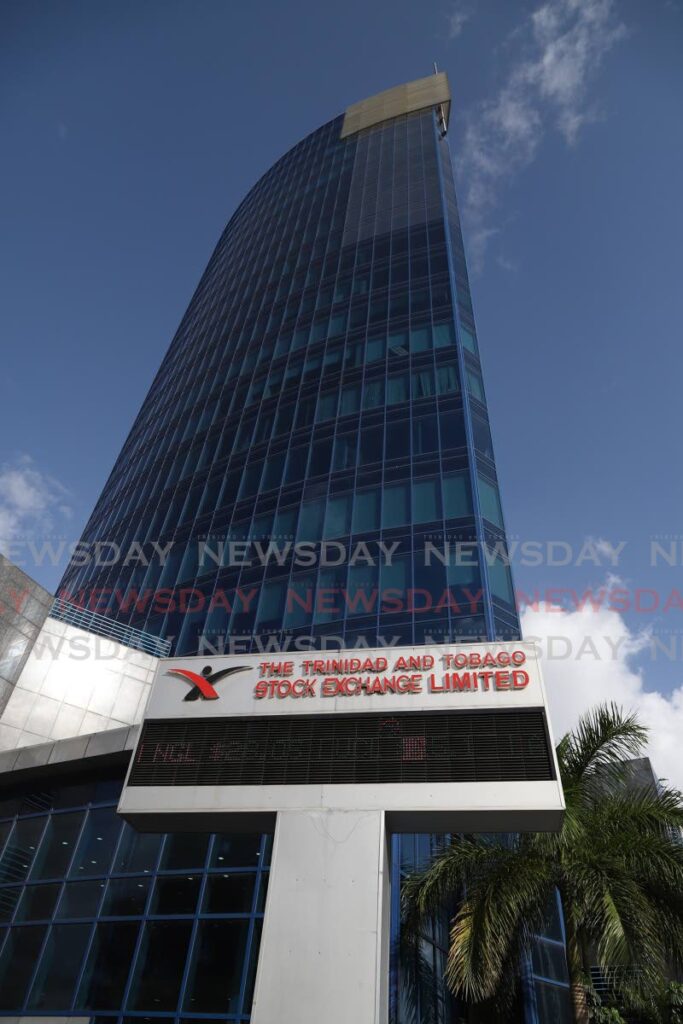Solis, NCB Merchant Bank aim to inspire family businesses, investors with IPO

PRINT solutions provider Eric Solis Marketing Ltd (Solis), a subsidiary of Office Authority, took the bold decision a year ago to open itself to scrutiny and offer part of the business to the public via an initial public offering (IPO) – one it hopes will inspire other small and medium enterprises (SME) in an otherwise underwhelming market.
"We decided this is the right time to do a listing to raise capital in the public market,” Solis’s chairman Angella Persad told Business Day at NCB Merchant Bank TT’s (NCBMBTT) head office on Maraval Road, Port of Spain.
The IPO went live on July 16, with 2,750,000 (33 per cent) ordinary shares at $4 per share. It will close on August 9 or before.
It is the first IPO listed in over five years, drawing praise from Minister in the Ministry of Finance Brian Manning.
“The launch of the IPO is a commendable achievement for Solis and a testament to their strategic vision and unwavering commitment to quality,” he said, adding that investors “can anticipate steady dividends, further development of business operations at Solis and expansion (through) new technologies.”
NCBMBTT is the underwriter, providing Solis with the capital to take on investments.
“We feel we’ve grown and developed and nurtured the company to a stage now where the company has reached the right level of maturity.
“We have the right governance structure in place and the company is ready to take this step.
“We also have some investment opportunities on the table,” Persad said, “and we felt that rather than go the traditional route of raising finance from the bank, it was an opportunity to raise patient (long-term) capital that we can invest in the new opportunities and give them time to really grow and develop properly.”

Photo courtesy Solis -
Solis’s core operations involve selling, renting and servicing multifunctional printers, photocopiers and other business equipment on a commercial scale.
Solis is a registered dealer for several global brands, including Brother and hp.
The company intends to invest in and expand its machinery rental model.
Rishi Baddaloo, the group’s managing director said purchasing a copier can be a major capital investment for an SME, costing over $100,000 depending on the size.
He said many opt to rent them for up to three years.
Funding the rental agreement requires that Solis use internal funds or take out loans to pay the suppliers in cash.
He said the rental model makes projections “highly predictable."
“Because once you enter into a rental agreement and you deploy a machine, you typically know what your revenue and profit are for the next 36 months coming from that piece of equipment.
“Then there's a layer of consumables. So based on the usage of the equipment ink, toner, consumable parts, et cetera, having a pool of patient capital funding that type of business is a great way to provide competitive prices to end-customers and generate cash for returns to the investors."
The company is also seeking to acquire new business lines, he said.
It expanded its portfolio late last year when Samsung approached Solis to market its commercial menu boards and interactive displays in the southern Caribbean.
“(Applying) the rental model would make the investment quite affordable from an end-customer perspective because you won't have to buy the screen.
“Sure, they are available for sale but applying the same rental model to a different form of technology to A-grade-type customers is what capital can be used."
Solis employs 25-30 people, many of whom are technicians, under the Office Authority Group of about 300 staff.
Employees are able and encouraged to invest, Persad said.
“It’s an opportunity for our employees (have a stake) in the company they work for and reap the benefits from dividends and capital appreciation over time.”
She said the IPO’s listing is an opportunity for other SMEs to save themselves from folding.
“For family companies where after the founders have passed on or maybe want to retire, there's no succession.
“And so many companies don't even make the second generation because you have nobody to pass the company to or nobody interested.
“In the case of a listing, you can attract better talent. You can attract management willing to take on a leadership role and be groomed into that role.
Companies are required to operate more transparently, with a board of directors.
“So the entrepreneur-founder family can be more comfortable stepping back and saying, ‘we have a structure in place, we have a governance structure, they are operating within guidelines within regulations of the stock exchange, and so I feel comfortable that they will manage the business in a certain way.
“I’ll get my dividends just like everybody else gets their dividends, too, and the longevity and succession of the company will happen more than if you just remain as a private company.”

She said Solis has a strong leadership team and is not seeking changes in that department, but noted that “at all levels, you always need new additional staff.”
The potential to attract middle management or all lower levels would increase because people want to work for a listed company, Persad said.
“There's a certain profile, a certain aura attached to it and they're much more inclined to want to work for that listed company.
“I think the thinking (about listing) is it's much more open, it's much much more transparent. I know what's going on a little bit more, so I don't mind hanging my hand there. So for continuity of family businesses, I think it's a powerful structure to consider.”
WHAT TRADING'S LIKE IN JAMAICA
Comparing TT to Jamaica’s SME market, Baddaloo reflected on the considerable disparity in listings and trades between the countries.
“Trinidad has so many family businesses. But if you look at it from a generational perspective, most of those businesses don't last more than 30 years, 40 years max, because you have a founder and then you may have a second generation who takes what the founder did and tries to grow it.
“So all of a sudden, you have a business that was grown, developed, certainly afforded the family a particular lifestyle, and added value to the market and its customers. But continuity is a major issue.”
In many cases, the children and grandchildren of the original business owner might choose an alternative career path unrelated to the business.
He suggested listing on the SME market may allow the company to thrive longer than it would have otherwise.
“You can potentially attract patient capital for growth. You can perhaps attract improved human talent as well because you now have a very stable base.
“People know about the company, people are attracted to the company and you can negotiate probably a little stronger with your suppliers because you're publicly listed.
“You can negotiate a little stronger with your bankers as well because bankers love a publicly-listed company because of the governance structures in place.
“Those are the reasons I think the concern about transparency, information would be in the public domain and those concerns really become secondary."
The broker-dealer/leader arranger and underwriter provide a safety net for the listed business.
“For a financial institution the size and scale of NCB to back an IPO by underwriting it means that they are very confident in the ability of the company to provide a return and also obviously to sell the shares.
“But for us…and I would also even say for other family businesses, it makes it easier to become a public company,” one which carries a heavy burden of responsibility, he said, “because as a private company, you're managing your private capital – your exposure to investments…and, of course, your bankers to pay your loans on time.
“When you go public you're managing the expectations of other people and their hard-earned money. That is a tremendous responsibility and very sacred.
“And therefore, for other businesses considering it, having that respect for other people putting their money and backing you, because…it must come down to something fundamental. There's no secret source. It's based on grounded fundamentals – financial returns.
THE UNDERWRITER’S ROLE
NCB Merchant Bank TT Ltd (NCBMBTT) worked with Solis to ensure governance compliance and assess their financial health and structures to arrive at the initial value and number of shares to be sold.
NCB’s mandate is to act as the broker, manage transactions, and underwrite them using its own balance sheet.
“For us to feel comfortable underwriting, we must first satisfy ourselves internally that the fundamental investment thesis is strong,” CEO Marli Creese told Business Day.
Creese discussed the firm’s role in Solis’ IPO and its wider strategy to encourage more TT SME listings.
TT’s SME market has room for growth in liquidity, depth and vibrancy in the number of offerings coming to market, he said, and the NCB group’s mandate is to leverage its experience in Jamaica to help develop the TT market.
“Because we are a part of NCB Capital Markets (which has) equity capital market investment banking in its DNA, to a certain extent we are leveraging the expertise that NCB Capital Markets accumulated over many years in Jamaica and rolling that out in the TT space,” said Creese.
While there is no shortage of small family-owned businesses in TT, they appear far more apprehensive to take their company public.
“The financial markets in Jamaica are more liquid, I dare say more vibrant,” he said.
“Our view is that Trinidad is on a similar development trajectory – the advantage being that NCB Capital Markets has seen that growth cycle before in Jamaica.
“The individual investor participation rate in TT is relatively low compared to Jamaica, much less so more developed capital markets, and we hope that not just by facilitating these offerings and underwriting them, but by educating the public it would also help to develop the capital markets in the long run."
Solis’s IPO listing is part of a broader strategy, Creese said.“If I could sum up our vision in an anecdote, it would be that we want the investing in stocks to be part of regular dinner table conversation for the average citizen of TT at all levels of society.”
Asked about the potential hindrances of increased listings, Creese said the organisation understands them and tackles them head-on with financial literacy campaigns.
“On the business owner side, I would say there are some concerns surrounding how much control they might want to give up in terms of the percentage of the business,” he said.
Currently, listing as an SME requires at least 30 per cent of shares are listed.
“That is a concern to some,” Creese said. “But there are discussions on the way in terms of lowering that particular threshold that I won't speak too much on because it's still under discussion.
“There are also concerns surrounding the heightened level of transparency that putting your business out there requires because once you're listed on the exchange you automatically become a reporting issuer.
“You have to publish your financial statements,” he said, with specific deadlines.
“So in a culture in which there are far more family-owned businesses than public companies, there is still the traditional view that privacy is paramount and some business owners may need to be convinced over time that the economic and intangible benefits of listing far outweigh some of these concerns that they may have.”
He said the firm is optimistic other SMEs will follow suit.
“We are optimistic that entrepreneurs and business owners…would also come forward, once they actually see the results for themselves through IPOs like this (and) how it can help benefit businesses by tapping into financing that is not strictly bank financing in nature.
“(It is) something that we believe in and is part of our vision for what the capital markets are going to look like five and ten and 15 years from now."
He encouraged the use of GoIPO, a web portal developed internally in Jamaica and expanded to TT to facilitate the digital submission of IPO applications.
“It reduces the paper-related onerous costs associated with having to print forms and fill them out,” Creese explained. “And it streamlines the process by which an individual can apply for an application in an IPO.”
In a press release, he further explained, “We have connected local SME operators with regional counterparts who have listed on the Jamaica Stock Exchange, regional regulators, and key industry stakeholders, offering guidance, resources and capacity building tools needed (to become) ready for significant capital events, such as going public.
“As a broker, we recognise that it is equally important to ensure investors are educated and empowered to take advantage of significant wealth-building opportunities such as this.”
The firm has also partnered with the stock exchange for free online educational webinars geared mainly for individual investors.
“Individual investors (are where) your liquidity really comes from; not so much large institutional investors who for the most part buy and hold forever,” Creese said.“So part of our aspiration for this offering is to carve out a certain percentage of the offering for individual investors to give them priority, to allow the average TT citizen an opportunity to invest while educating them about their investment options.”

Comments
"Solis, NCB Merchant Bank aim to inspire family businesses, investors with IPO"